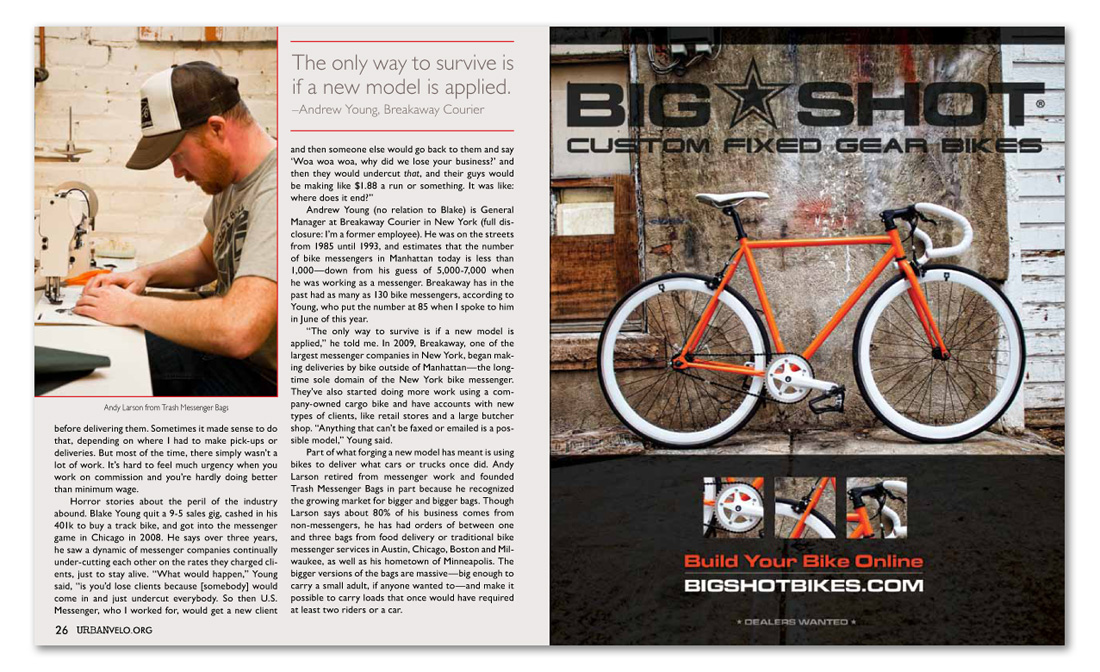


before delivering them. Sometimes it made sense to do that, depending on where I had to make pick-ups or deliveries. But most of the time, there simply wasn’t a lot of work. It’s hard to feel much urgency when you work on commission and you’re hardly doing better than minimum wage.
Horror stories about the peril of the industry abound. Blake Young quit a 9-5 sales gig, cashed in his 401k to buy a track bike, and got into the messenger game in Chicago in 2008. He says over three years, he saw a dynamic of messenger companies continually under-cutting each other on the rates they charged clients, just to stay alive. “What would happen,” Young said, “is you’d lose clients because [somebody] would come in and just undercut everybody. So then U.S. Messenger, who I worked for, would get a new client and then someone else would go back to them and say ‘Woa woa woa, why did we lose your business?’ and then they would undercut that, and their guys would be making like $1.88 a run or something. It was like: where does it end?”
Andrew Young (no relation to Blake) is General Manager at Breakaway Courier in New York (full disclosure: I’m a former employee). He was on the streets from 1985 until 1993, and estimates that the number of bike messengers in Manhattan today is less than 1,000—down from his guess of 5,000-7,000 when he was working as a messenger. Breakaway has in the past had as many as 130 bike messengers, according to Young, who put the number at 85 when I spoke to him in June of this year.
“The only way to survive is if a new model is applied,” he told me. In 2009, Breakaway, one of the largest messenger companies in New York, began making deliveries by bike outside of Manhattan—the long-time sole domain of the New York bike messenger. They’ve also started doing more work using a company-owned cargo bike and have accounts with new types of clients, like retail stores and a large butcher shop. “Anything that can’t be faxed or emailed is a possible model,” Young said.
Part of what forging a new model has meant is using bikes to deliver what cars or trucks once did. Andy Larson retired from messenger work and founded Trash Messenger Bags in part because he recognized the growing market for bigger and bigger bags. Though Larson says about 80% of his business comes from non-messengers, he has had orders of between one and three bags from food delivery or traditional bike messenger services in Austin, Chicago, Boston and Milwaukee, as well as his hometown of Minneapolis. The bigger versions of the bags are massive—big enough to carry a small adult, if anyone wanted to—and make it possible to carry loads that once would have required at least two riders or a car.